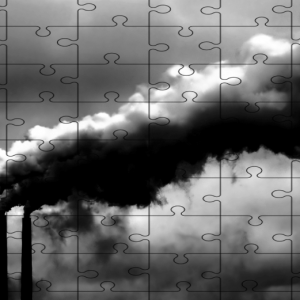Federal Water Tap, February 11: Landsat 8, Ready for Liftoff
Today, just after the lunch hour, NASA launches the eighth version of Landsat. The earth-observing satellite will carry two instruments that will, among other things, measure water quality and quantity. NASA will cover the launch of the satellite live online. Liftoff is scheduled for 1:02 p.m. eastern standard time.
Water Themes for Congress
Federal spending on water supply infrastructure and ecosystem restoration. The operation of federal reservoirs in river basins with testy water relations. How to respond to drought and flood. These are a few of the water matters that the current band of U.S. senators and representatives will consider this session of Congress, according to a Congressional Research Service report made public by the Federation of American Scientists.
Groundwater Drop
A section of the Columbia Plateau aquifer had a mean decline in the water table of 58 centimeters (1.9 feet) per year from 1968 to 2009, according to a U.S. Geological Survey study. Some 72 percent of wells in the study area, which covered parts of Oregon and Washington, showed a drop in water level.
Oil Shale Estimate
Between 353 billion barrels and 1.15 trillion barrels of recoverable oil rest in the Green River oil shale formation in Colorado, Utah and Wyoming, the U.S. Geological Survey reckons. The high-end number is based on developing those deposits that would yield 15 gallons of oil per ton of rock. The lower figure limits production to a higher-grade deposit: those yielding 25 gallons per ton. The Green River Formation no doubt holds oil, but the Government Accountability Office has warned that the region might not have enough water to exploit the hydrocarbons.
Abandoned Mine Clean Up
The Department of Interior is proposing new rules for states and tribes that wish to spend federal funds to clean up abandoned mines. The department will extend limited liability protection for non-coal mine restoration projects to the 25 states and three Indian tribes certified by the federal government for mine reclamation programs.
The current law provides limited liability only to projects that target coal mines. Without the liability protection, states and tribes potentially expose themselves to lawsuits under the Clean Water Act, according to Congressional testimony from an abandoned mine program manager for the Navajo Nation.
Natural Gas A Top Priority
A comprehensive look at natural gas will be the “first order of business” for the Senate committee that handles energy policy, wrote Ron Wyden (D-Oregon), the new chair of the Senate Committee on Energy and Natural Resources, in an op-ed in The Hill.
Sen. Wyden also sent a letter to Interior Secretary Ken Salazar urging the Interior Department to adopt a rule for hydraulic fracturing on public lands that has “sound requirements for public disclosure, well integrity and monitoring.”
Tomorrow the full Energy and Natural Resources Committee will hold a hearing on natural gas. Industry representatives, state officials and environmental leaders will testify.
Climate Change Adaptation
The Environmental Protection Agency is accepting public comments on its climate change adaptation plan through April 9. Comments can be submitted via www.regulations.gov, referencing docket number EPA–HQ–OA–2012–0247.
One of the plan’s goals is to help EPA staffers understand how climate change affects their particular programs. The plan also cites Canadian hockey legend Wayne Gretzky, who said, “I skate to where the puck is going to be, not where it has been.”
Federal Water Tap is a weekly digest spotting trends in U.S. government water policy. To get more water news, follow Circle of Blue on Twitter and sign up for our newsletter.
Brett writes about agriculture, energy, infrastructure, and the politics and economics of water in the United States. He also writes the Federal Water Tap, Circle of Blue’s weekly digest of U.S. government water news. He is the winner of two Society of Environmental Journalists reporting awards, one of the top honors in American environmental journalism: first place for explanatory reporting for a series on septic system pollution in the United States(2016) and third place for beat reporting in a small market (2014). He received the Sierra Club’s Distinguished Service Award in 2018. Brett lives in Seattle, where he hikes the mountains and bakes pies. Contact Brett Walton





Leave a Reply
Want to join the discussion?Feel free to contribute!